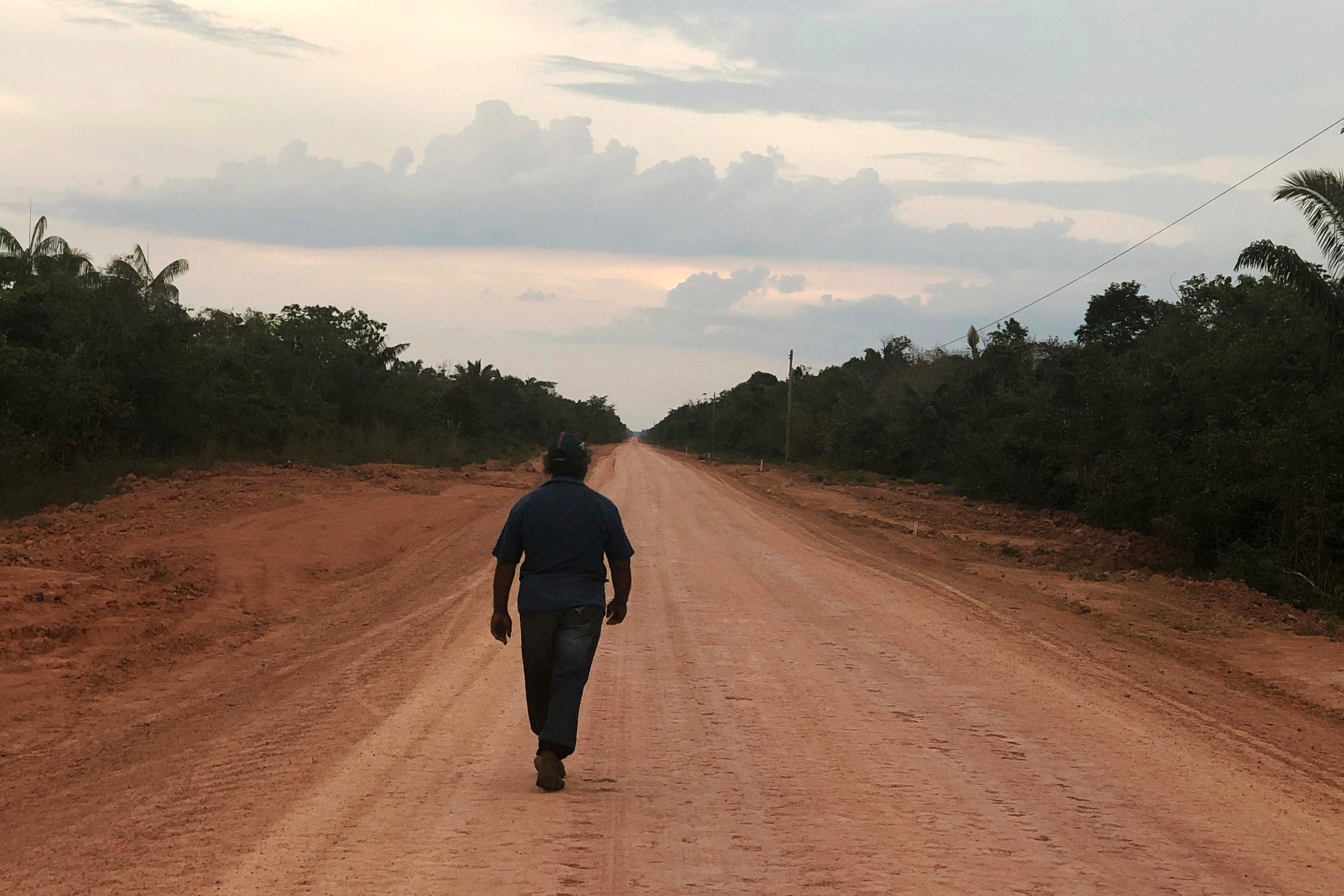Brazil moves toward paving road key to deforestation
The Brazilian government has granted a preliminary environmental permit for paving a controversial highway that cuts through one of the Amazon’s most preserved areas

Your support helps us to tell the story
From reproductive rights to climate change to Big Tech, The Independent is on the ground when the story is developing. Whether it's investigating the financials of Elon Musk's pro-Trump PAC or producing our latest documentary, 'The A Word', which shines a light on the American women fighting for reproductive rights, we know how important it is to parse out the facts from the messaging.
At such a critical moment in US history, we need reporters on the ground. Your donation allows us to keep sending journalists to speak to both sides of the story.
The Independent is trusted by Americans across the entire political spectrum. And unlike many other quality news outlets, we choose not to lock Americans out of our reporting and analysis with paywalls. We believe quality journalism should be available to everyone, paid for by those who can afford it.
Your support makes all the difference.In a decision that critics have labeled as dangerous, Brazil’s government granted a preliminary environmental permit for paving a dirt highway that cuts through one of the Amazon rainforest’s most preserved areas.
The road known as BR-319, runs about 900 kilometers (560 miles) and is the only highway connecting Manaus, home to 2.2 million people, with the nation’s larger urban centers further south. Half the length of BR-319 is still unpaved, and that stretch usually becomes impassable during the rainy season, which can last up to three months. This difficulty keeps forest clear cutters away.
Researchers and environmentalists argue that the paving will lead to mass clearing of pristine rainforest, given that most Amazon deforestation occurs alongside roads where access is easier and land value is higher. In fact that is already happening before the paving even starts.
"Law enforcement actions are insufficient to curb the illegal occupation, invasions, deforestation, land speculation and pressures that have been increasing exponentially in recent years,” Fernanda Meirelles, executive secretary of BR-319 Observatory, a watchdog group, told The Associated Press.
The preliminary license is a crucial part of the project’s ultimate approval, because it means it has passed both economic and environmental screens. The asphalt work can't begin yet though. Brazil’s environmental agency, Ibama, also laid down several conditions, including creation of a conservation area as a buffer for an Indigenous group, the monitoring of water quality nearby and an archeology program.
But the agency is ignoring "the main problem, the explosion of deforestation in the region,” Suely Araújo, Ibama's former president, told the AP.
The conditions established in the license are not enough to assure there won’t be a surge in deforestation, so it shouldn;t have been granted, said Araújo, now a senior public policy specialist at the Climate Observatory, a network of environmental groups.
President Jair Bolsonaro, who is campaigning for reelection, celebrated the permit on his Twitter account as another example of an infrastructure project moving ahead under his watch and said the paving will help keep traffic flowing in the nation's interior.
“Brazilians have gotten used to cars and trucks getting bogged down on the BR-319 highway,” he wrote, along with a video showing deep mud on the road. “This time, fortunately, it is coming to an end.”
After Bolsonaro repeatedly promised to pave BR-319, the area around it this year for the first time became the Brazilian Amazon's main deforestation hotspot, according to official data.
The BR-319 Observatory, a network of non-profits including WWF Brazil, Greenpeace Brazil and the Coordination of Indigenous Organizations, says local communities haven't been consulted about the project, as the law requires.
“These peoples’ rights have been violated,” Meirelles said. ___
Associated Press climate and environmental coverage receives support from several private foundations. See more about AP’s climate initiative here. The AP is solely responsible for all content.